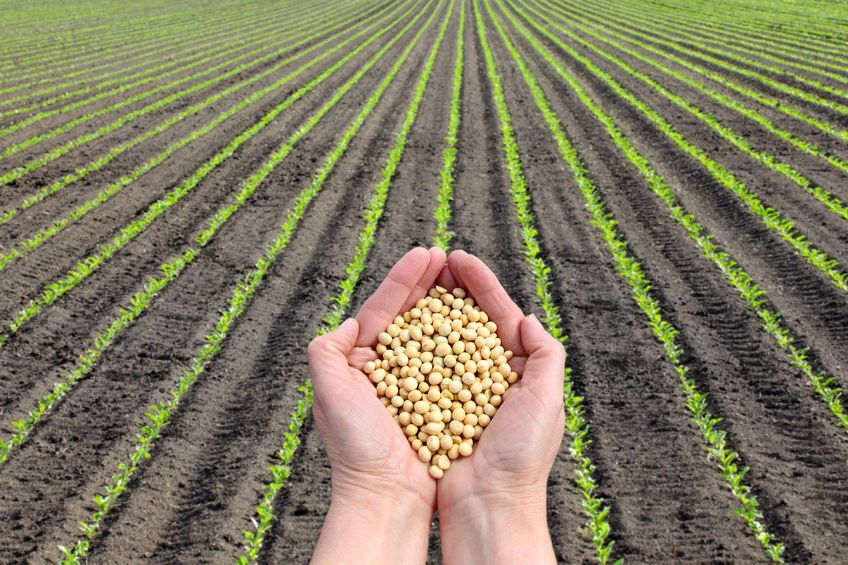
A new research project looking at the possibility of growing soybean in the UK as a profitable, low-carbon crop has received a £190,000 donation boost.
Zimbabwean Pedzisai Nemadziba is developing strategies for the UK to successfully grow large-scale soybean crops, which have lower reliance on fertilisers and are becoming a growing part of the British diet.
The majority of the UK’s soya is currently imported and genetically modified.
Mr Nemadziba, who is doing his PhD at the Royal Agricultural University (RAU), has received the research investment from the John Oldacre Foundation, which supports the agricultural sciences.
The Foundation has pumped £2 million into boosting agriculture and food security research at RAU.
If systems can be found to successfully grow soybeans at scale in the UK it would not only improve the diversity of cropping on farms but could help lower the amount of imported soya in the UK, much of which is GM, according to Mr Nemadziba's supervisor, Dr Nicola Cannon.
“Soybean also has the benefit of being a leguminous crop (the same family as, for example, peas and beans) which means it can form an association with nitrogen fixing bacteria, reducing the need for additional fertiliser,” Dr Cannon said.
“Being spring sown, residues from the previous soybean crop can also be left over winter to provide a feed source for wild birds or the land can be sown with a cover crop to help with removal of carbon from the atmosphere, known as sequestration,” she added.
Soya is often incorporated into meat products, including burgers and sausages, to help reduce red meat consumption for environmental and dietary benefits.
Growing soya in the UK would help improve consumer understanding of this crop whilst reducing food miles, and, in the near future, be a profitable and viable crop for British farmers.
The John Oldacre Foundation was formed after the death of John Oldacre, and its objectives are “to provide financial support for the advancement or promotion, for the public benefit, of research and education in agricultural sciences and the publication of the useful results of such research.”
